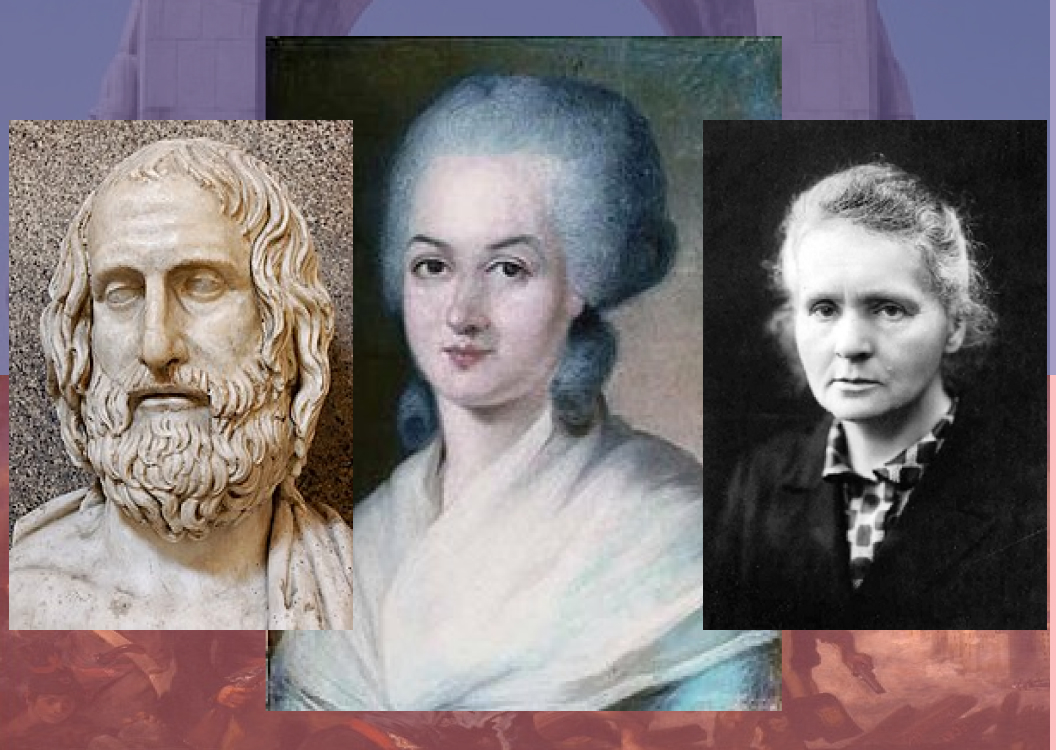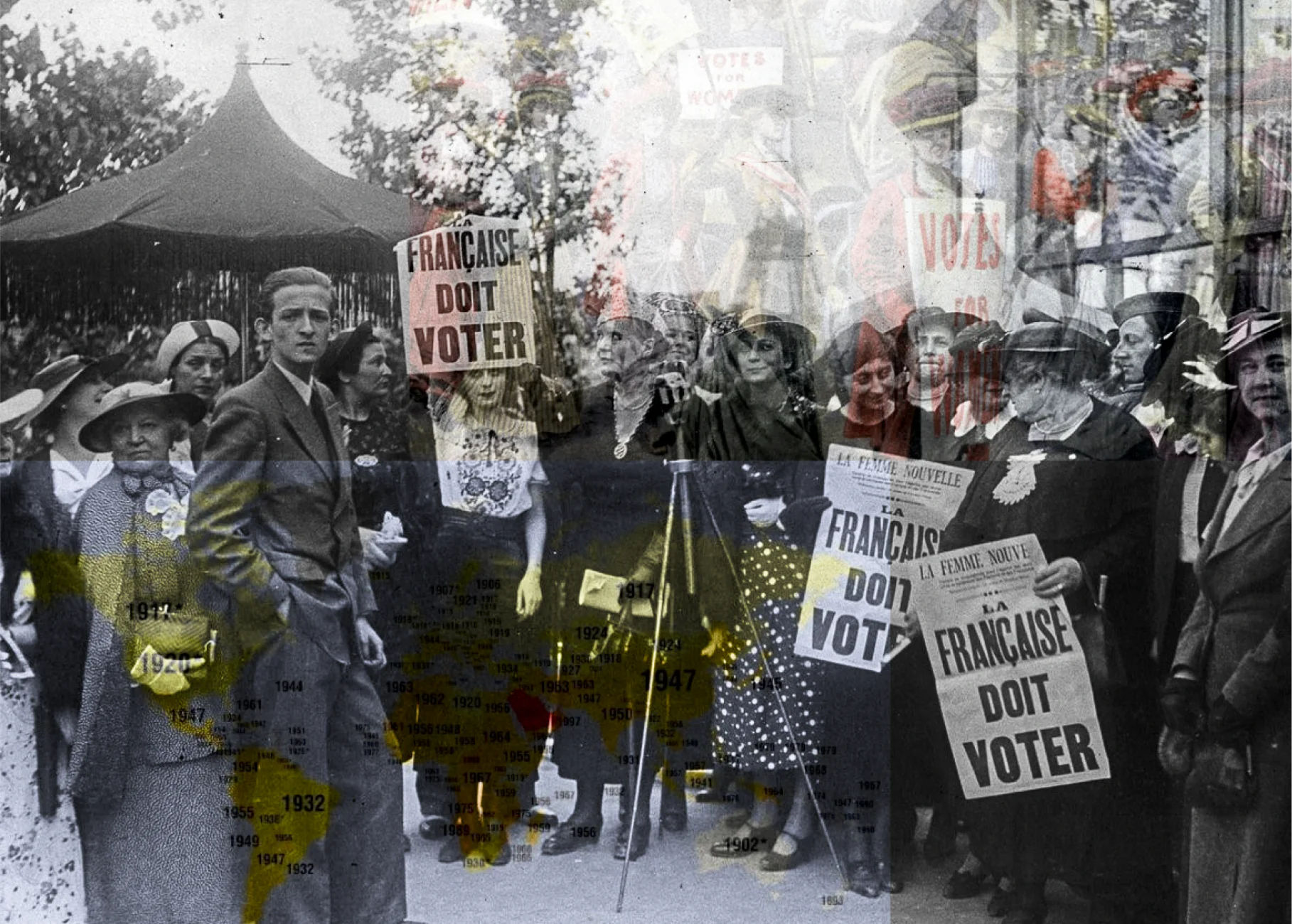Feminism, from antiquity to the present
The world as we know it today has not always been so egalitarian. The position of women in society has clearly evolved from Greek antiquity to the present day. Indeed, feminist ideas have been expressed since antiquity and throughout the world. This ideology contradicts the dominant misogynistic mores and discourse. However, it was not until the 19th century in Europe that feminism became a political movement. We will talk about feminism through time, from Antiquity to the contemporary era, through the Middle Ages and modern times.
Antiquity (from -3000 to 476)

The Greek city excluded women by giving them an image of inferiority, incapable of thinking, and of taking part in public life. Women are part of the "victims" of society. Authors will therefore defend the female place in society as understood by the citizens: courtesans allow pleasure, concubines provide daily care and wives give legitimate children and are the faithful guardians of the home.In the Greek city, married women did not mean citizens. From the age of 15, girls who did not attend school were married without their consent.
Moreover, in Greek mythology, the Amazons (around 700 BC) were beautiful and valiant warriors, always armed and dangerous. The Greeks considered them to be the "equals of men", as brave and skilled in battle as they were.
Middle-Ages (from 476 to 1492)

The condition of women during the 10 centuries of the Middle Ages was rather good, contrary to common According to historians, the peak of women's condition was between the 10th and the end of the 13th century. This means that there were a large number of women who distinguished themselves.
The situation of women has varied enormously. The Gauls were quite complementary with the Gaul women. Their women were integrated in the administrative, political and religious management of the society. On top of that, marriage was neither sacred nor obligatory and divorce was perfectly equal. In short, men and women were equal.
However, the place of women changed with the invasion of Rome. On the one hand, there were married women who only served to give birth to new citizens.
Then on the other side, there were the prostitutes destined for the pleasures of men. In conclusion, they were by essence inferior and depended on their father, husband or master. On the other hand, communities will be created to find a potential equality. For example, during the XIIIth century, widowed or single Parisian women gathered to study and work as they wished. This community of feminist women in the Middle Ages was called the Beguines.
Modern era (from 1492 to 1789)

From the end of the Middle Ages, some authors began to criticize the place given to women in society. The feminist discourse will take several centuries to take place and to be displayed as a movement of claim. However, the role of women in modern times was defined primarily as wives or mothers.
Women of the modern era stood up against "male domination". They opposed political systems based on individual freedom but excluding women. Moreover, the rise of philosophy in the 18th century affirmed that the inferiority of women was not tenable. However, women are still seen as naturally inferior. The Enlightenment left very few feminist writers demanding total equality with men. The place of women has therefore undergone significant changes between the beginning and the end of the modern era.
Contemporary period (from 1789 to nowadays)

Women's rights have been the subject of much debate since the French Revolution. Noble women and nuns represent the order to which they belong. The women of the people, as for them, ask for the right to education. They also demanded to get jobs. They do not want to exceed the authority of men but to be more esteemed. Laws that allowed it to be redefined : marriage (no more obligation for women), equality of heirs and the right to divorce. However, to obtain civic and political equality, it will be necessary to wait until the end of the XIX century until the middle of the XX century for the majority of the States.
Read more fascinating articles
Feminism, from antiquity to the present

The world as you know it has not always been so equal. You will see how the position of women has changed from ancient times to the present.
Chronology
WRV Timeline

You will know for more than 50 countries, the date corresponding to the access to the Right to Vote for Women.



